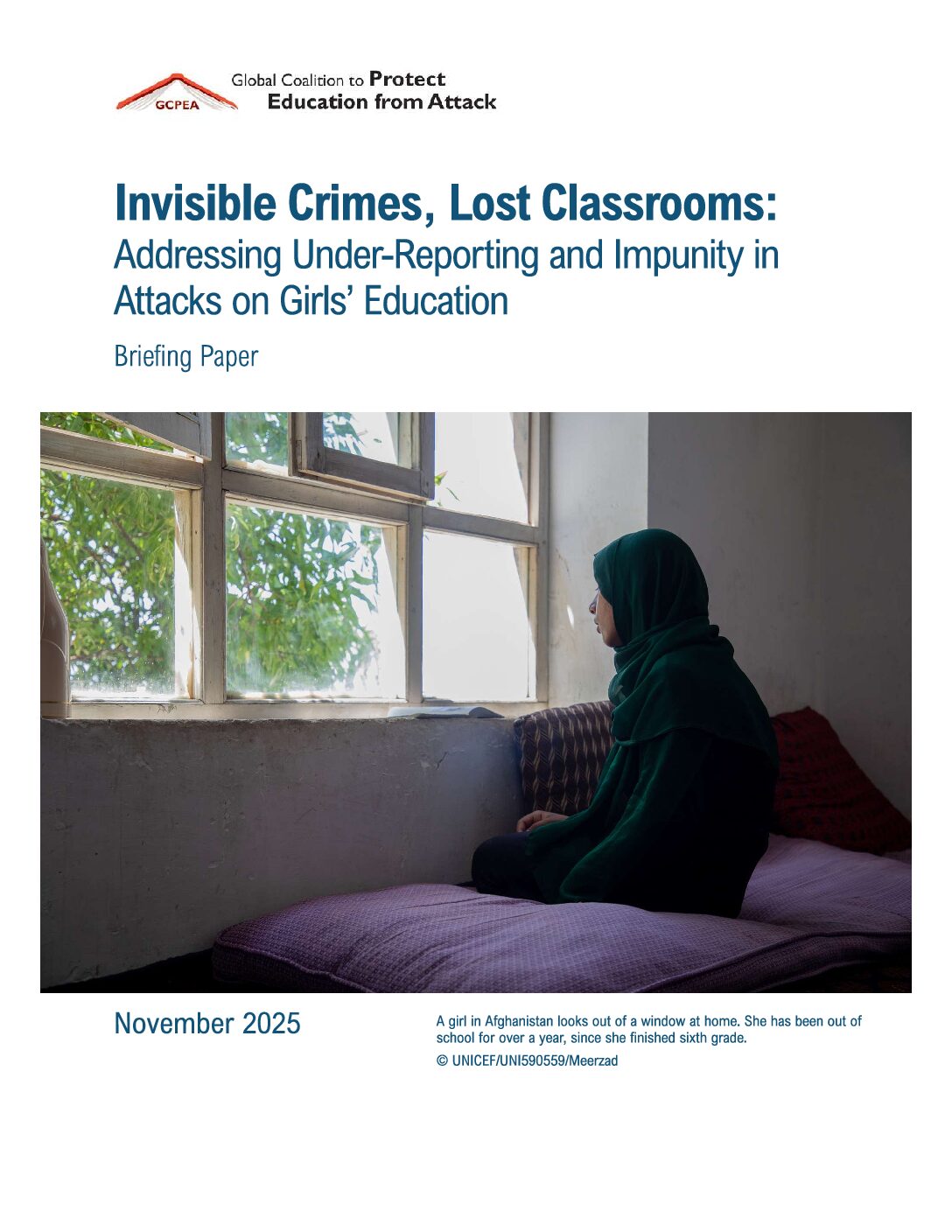GCPEA News
Girls Who Risk Their Lives for Education
New York Times, April 9, 2013
LONDON — Almost unnoticed, one of the great civil rights struggles of our times is being fought out in our midst. Across the Indian subcontinent, in Afghanistan and in Africa, supporters of universal girls’ education are being threatened, assaulted, bombed and murdered.
Within the past two weeks alone, a 41-year-old teacher was gunned down 200 meters from her all-girls school near the Pakistan-Afghan border; two classrooms in an all-girls school in the north of Pakistan were blown up; and at an awards ceremony in the heart of Karachi, a principal was shot to death and another teacher and four pupils were wounded after grenades were hurled into a school that specialized in enrolling girls.
It was perhaps no coincidence that the Karachi teachers had been visited last year by Malala Yousafzai, the 15-year-old who was shot in October simply because she wanted girls to go to school and is now a global symbol for the right of girls to education.
In the last two years hundreds of schools in Pakistan and Afghanistan have been firebombed and closed down by religious fundamentalists determined to stop the march of girls’ education.
But just as in 1960s America, when unspoken resentments against discrimination slowly transformed into a wave of public defiance, Pakistan’s silent majority is refusing to stay silent any longer. More and more are saying that neither bombs nor bullets nor arson will now stop them from sending girls to school.
And, for the first time, it is not adults but girls themselves who are pushing this civil rights movement forward. A few months ago, when Morocco’s education minister visited a Marrakech school, he told a 12-year-old named Raouia Ayache she would be better off leaving school and becoming a child bride: “You! Your time would be better spent looking for a man!”
But Raouia stood up to him and stayed in school, her family protesting to the government about how the education minister had betrayed his obligation to promote education.
Across the Indian subcontinent, teenage girls are joining together, village by village, to create “child-marriage-free zones.”
In Bangladesh, the so-called “wedding busters” have now created 19 such zones, pledging that they will support one another to stay in school and resist being married against their will.
Add the child-marriage-free zones, the Malala demonstrations, the petitions against child labor, the growing movement exposing child trafficking, and there are a million young Malalas. All are trying to uphold and affirm their human dignity and battling for their rights, doing so far from the glare of publicity, fighting a daily unrecorded battle for human decency and fair treatment.
Of course many of the rights that girls are fighting for are those that have been taken for granted, at least for a century, in most countries. We have moved from an old world where, if you were a girl, your rights were what others decreed, your status what others ascribed to you, and if your mother was poor, so too would you always be.
But today’s movement is not just for emancipation — a 20th-century demand for freedom from injustices — but for empowerment, a 21st-century demand for freedom to make the most of your talents. It is a liberation movement more akin to the Arab Spring.
And it is, potentially, a game changer. The movement challenges world leaders to recognize that, despite the Millenium Development Goal promise to ensure universal education for girls by the end of 2015, progress has stalled. As Martin Luther King said in his time about the “promissory note” on black rights, the check has been returned marked “insufficient funds.”
Next week, The United Nations secretary general, Ban Ki-moon, and the president of the World Bank, Jim Yong Kim, will meet with countries that are off-track to discuss the legislation, incentives, reforms — and money — needed to speed up the enrollment of girls in schools.
I will share with them the testimony of the two friends of Malala Yousafzai, Kainat Riaz and Shazia Ramzan, who were also shot on the Swat Valley school bus that fateful day last October. Both want to be doctors. Both are still in Pakistan, protected in their homes by security guards, escorted to school by police. I have talked twice to the girls, and, as they repeated to a foreign TV crew only a few weeks ago, they are being persecuted but will never again be cowed.
Four years ago, Kainat says, girls were hiding their books under their burqas. Now, she says, the Taliban “can’t stop us from going to school. I want to study. I am not afraid.” Now, Shazia says, “We are strong.”
Gordon Brown is the United Nations secretary general’s special envoy for global education. A Labour member of the British Parliament, he was Britain’s prime minister from 2007 to 2010 and chancellor of the Exchequer from 1997 to 2007.



